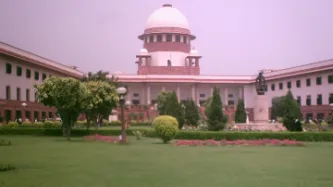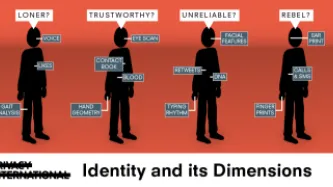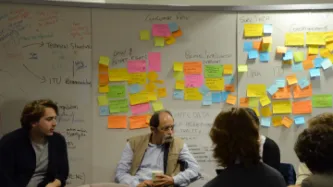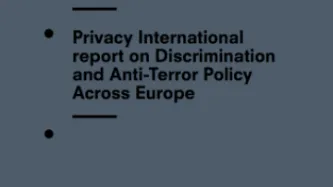Search
Content type: Long Read
Photo credit: Francisco Javier Argel
Questions of identification and ID, with their associated privacy risks, are only increasing. There are multiple dimensions to understanding the impact of ID and identification; a key one is to understand how it can exclude. This is why Privacy International is conducting research to explore this important and underreported aspect.
Read our case studies: Carolina and Iliana.
In the identity discourse, identity is often closely linked to themes of “…
Content type: News & Analysis
Photo Credit: Marion S. Trikosko
This month, the World Bank's Identity for Development (ID4D) initiative is launching its inaugural "Mission Billion Challenge", a competition designed to promote innovation in the identity space with the inaugural question: "How can digital identification systems in developing countries be designed to protect people’s privacy and provide them with greater control over their personal data?” But make no mistake: introducing "privacy by design" does…
Content type: Long Read
Image attribution: By Legaleagle86 at en.wikipedia, CC BY-SA 3.0.
In a long-anticipated judgment, the Indian Supreme Court has ruled that India's controversial identification system Aadhaar is Constitutional. They based their conclusion on notes that there are sufficient measures in place to protect data, and that it is difficult to undertake surveillance of citizens on the basis of Aadhaar.
But there is some good in this ruling. The court has demanded that the Government introduce…
Content type: Long Read
Who are you? The Challenges of Identity and Identification
“Identity” is a word that covers an incredible range of contested, deeply personal and highly politicised questions. These range from the political and the sociological, through to the psychological and philosophical. A question such as “who are you?” can elicit a multiplicity of responses, none of which are straightforward, are sometimes highly contextual, and are often deeply contested.
However, there is something of an attempt to…
Content type: Long Read
The Sustainable Development Goals (SDGs) are the United Nations-led initiative to define the development agenda. Building on the eight Millennium Development Goals, the SDG’s 17 goals – and the 169 targets – serve as an opportunity to tackle many of the most pressing issues in the world today. The SDGs are also explicitly grounded in human rights. Goal 16 on “peace, justice, and sustainable institutions” aims to “Promote peaceful and inclusive societies for sustainable development, provide…
Content type: Long Read
To celebrate International Data Privacy Day (28 January), PI and its International Network have shared a full week of stories and research, exploring how countries are addressing data governance in light of innovations in technology and policy, and implications for the security and privacy of individuals.
According to the World Bank, identity “provides a foundation for other rights and gives a voice to the voiceless”. The UN Deputy Secretary-General has called it a tool for “advancing…
Content type: News & Analysis
This guest piece was written by Leandro Ucciferri of the Association for Civil Rights (Asociación por los Derechos Civiles). It does not necessarily reflect the views or position of Privacy International.
We look at our smartphone first thing in the morning to check the weather, and our to-do list for the day. During breakfast, we read the news and learn about what is going on in the rest of the world. In our commute to work or college, we scroll through our social media feeds…
Content type: News & Analysis
This guest piece was written by Elonnai Hickok, Amber Sinha and Vanya Rakesh of the Centre for Internet and Society. It does not necessarily reflect the views or position of Privacy International.
In 2009, the Government of India set up the Unique Identification Authority of India (UIDAI) as an attached office of the erstwhile Planning Commission of India via an executive order. The mandate of the UIDAI was to assign a 12-digit unique identification (UID) number (…
Content type: News & Analysis
In the coming year, the elections to be held in Nigeria, Indonesia, Turkey, Ethiopia, Mexico, and Tunisia will be closely watched. Not only will the international community be monitoring the elections, but domestic governments could be monitoring their own citizens at the ballot box.
When courageous citizens brave uncertain political and societal contexts to exercise one of their fundamental human rights - the right to vote - they will rely on another fundamental human right - privacy. Privacy…
Content type: News & Analysis
Humanitarian agencies are collecting personal information for Syrians caught in the crossfire of a drawn-out and bloody civil war. Indeed, refugees fleeing persecution and conflict, need to access services and protection offered by the world’s humanitarian community. But in the rush to provide necessary aid to those afflicted by the crisis in Syria, humanitarian organisations are overlooking a human right that also needs protecting: the right to privacy.
Humanitarian and aid agencies are…
Content type: News & Analysis
Privacy International today is proud to announce our new project, Aiding Privacy, which aims to promote the right to privacy and data protection in the development and humanitarian fields. Below is an outline of the issues addressed in our new report released today, Aiding Surveillance.
New technologies hold great potential for the developing world. The problem, however, is that there has been a systematic failure to critically contemplate the potential ill effects of deploying technologies in…
Content type: News & Analysis
Since mid-2012 the Hebrew University International Human Rights Clinic has been collaborating with Privacy International to produce research about the state of privacy laws and protections in Israel and worldwide.
Last week marked the launch of a long-anticipated pilot of a controversial Israeli biometric database, a project that has been the target of civil society protest and the subject of a challenge in the Israeli Supreme Court.
While there is no shortage of institutions maintaining…
Content type: News & Analysis
Large institutions tend to focus internally, with minimal regard to the external environment. Open Databecoming institutionalised is not different, and as a leading edge country in opening data, the UK is making the predictable mistakes first:
The UK’s Department for Education (DfE) is currently considering opening data from the National Pupil Database. At a preparation event for this initiative, at which some data was released for use in an ‘appathon’, one participant believed he…
Content type: News & Analysis
Privacy is internationally recognized as a fundamental right. Yet the confines of the right to privacy are subject to never-ending games of tug-of-war between individuals, governments and corporations. These games are rarely fair – individuals are often under-informed and lack the capacity to assert and protect their privacy, while those who seek to erode it are increasingly overbearing and secretive. This is particularly the case in developing countries, where the absence of adequate legal and…
Content type: News & Analysis
Privacy International's recent complaint to the UK Information Commissioner has threatened to bring to a halt an imminent plan to fingerprint all domestic and international passengers departing from Heathrow's Terminal 1 and Terminal 5, due to begin on March 27th. The British media is reporting that in response to PI's complaint, the Information Commissioner has advised that passengers should only accept fingerprinting "under protest" until our complaint is resolved.
The prospect of…
Content type: Report
Race relations across European states are usually far from ideal. However in law, European countries appear to grant Europeans ideal protections against discrimination. There are mounting tensions with ethnic and minority communities in countless European countries, with particular suspicion and aggression pointed towards the Roma people, Travellers, Northern Africans, Turks, Jehovah’s Witnesses, and people of Islamic and other faiths. Increasingly these groups are finding safe havens behind…
Content type: News & Analysis
For the attention of Members and staff of the European Parliament,
I am writing to you on behalf of Privacy International, a London-based human rights group, to call on you to stop the implementation of biometric travel documents.
We at PI have been monitoring the biometric passport developments for three years. Most recently we organized an open letter to the International Civil Aviation Organization (ICAO) calling for clarification and modification to the plans for the biometric passport…
Content type: News & Analysis
To the participants of the International Civil Aviation Organization 12th Session of the Facilitation Division,
We are writing to you on behalf of a wide range of human rights and civil liberties organizations to express our concerns regarding a number of decisions emerging from your conferences and their likely effects on privacy and civil liberties. We are particularly worried about your plans requiring passports and other travel documents to contain biometrics and remotely readable ‘contact…
Content type: News & Analysis
On July 3rd 2002, the UK Government published a consultation paper on a national identity card. Privacy International has investigated such proposals across the world for more than a decade. Here, we answer all the questions the government has failed to answer.
What sort of ID card does the government have in mind?
What is the difference between an "entitlement" card, and an identity card?
Will an identity card will help eliminate benefit fraud?
Will an identity card help prevent terrorism?
Is…
Content type: News & Analysis
In 1994, in an attempt to discover the problems caused by ID cards, Privacy International compiled a survey containing reports from correspondents in forty countries. Amongst the gravest of problems reported to Privacy International was the over zealous use or misuse of ID cards by police - even where the cards were supposed to be voluntary. One respondent wrote:
On one occasion I was stopped in Switzerland when walking at night near Lake Geneva. I was living in Switzerland at the time and had…



















